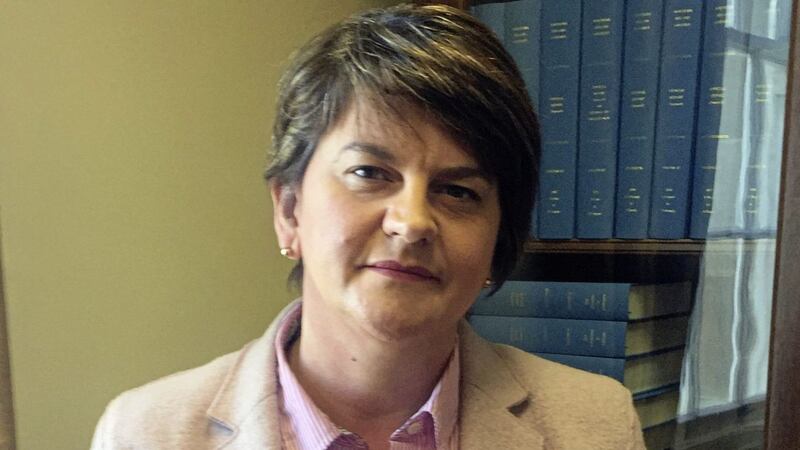THE prospect of an imminent breakthrough in power-sharing talks at Stormont appears to have receded after an impasse over the Irish language deepened.
DUP leader Arlene Foster made clear she would not sign off on a stand-alone Irish Language Act - a key Sinn Féin demand - and also ruled out any legislation that would see Irish road signs or workforce quotas of Irish speakers within the civil service.
However, Sinn Féin president Mary Lou McDonald said a language act was needed to reach a deal.
Mrs Foster, Stormont's former first minister, moved to temper expectations that an agreement to restore devolution is likely this week.
"I am hopeful that we will move toward devolution again," she said.
"Whether it is this week, whether it is in a couple of weeks or whether it's in a couple of months what I must ensure is that we have an accommodation that everybody feels content with."
In response, Ms McDonald told the DUP to show leadership and ignore the hard-line critics who were opposed to any settlement.
"I am concerned that the leader of the DUP felt moved to come out and talk back to some of the very unhelpful outside noise at this time," she told RTÉ.
"The DUP know, like the rest of us, what is required to reach a deal - Acht Gaeilge (Irish Language Act) and indeed other rights are clearly part of that."
The DUP has long insisted it would only countenance a language act if it also incorporates the Ulster Scots dialect.
The basis of a compromise solution appears to lie in how any legislation is presented.
Sources have suggested three pieces of legislation - an Irish Language Act, an Ulster Scots Act and a broader Culture and Respect Act - could be a means to satisfy both sides.
But yesterday's statements indicate a resolution is still proving elusive.
Mrs Foster yesterday said rumours about what Irish language legislation might look like were "not grounded in any sort of reality".
"There won't be a stand-alone Irish Language Act - we have always made that very clear, people aren't going to be forced to learn Irish, there isn't going to be Irish compulsory in schools, there's not going to be bilingual signs or quotas in the civil service," she said.
She added: "What we are trying to find is an accommodation and a way forward that values those people who are Irish speakers but doesn't impinge on the lives of those who aren't Irish speakers and I think that's important."
Sinn Féin senior negotiator Conor Murphy said: "However they want to describe it the DUP know that agreement requires an Acht Gaeilge.
"The DUP need to make up their mind about whether they are up for a deal or not."
Mrs Foster also made clear that if devolution is restored she expects to be first minister. Sinn Féin had previously ruled out her return to the post while an inquiry into the botched Renewable Heat Incentive scheme continued.
"I am the leader of the Democratic Unionist Party so therefore I will be the person that's put forward by the party to be first minister," she said.
Prime Minister Theresa May and Taoiseach Leo Varadkar travelled to Stormont on Monday but left without a deal being struck.
Mrs Foster said while the leaders were welcome, their presence proved a "bit of a distraction" as it interrupted negotiations. The DUP leader said the governments had been told in advance of their trip that "the deal wasn't done".








